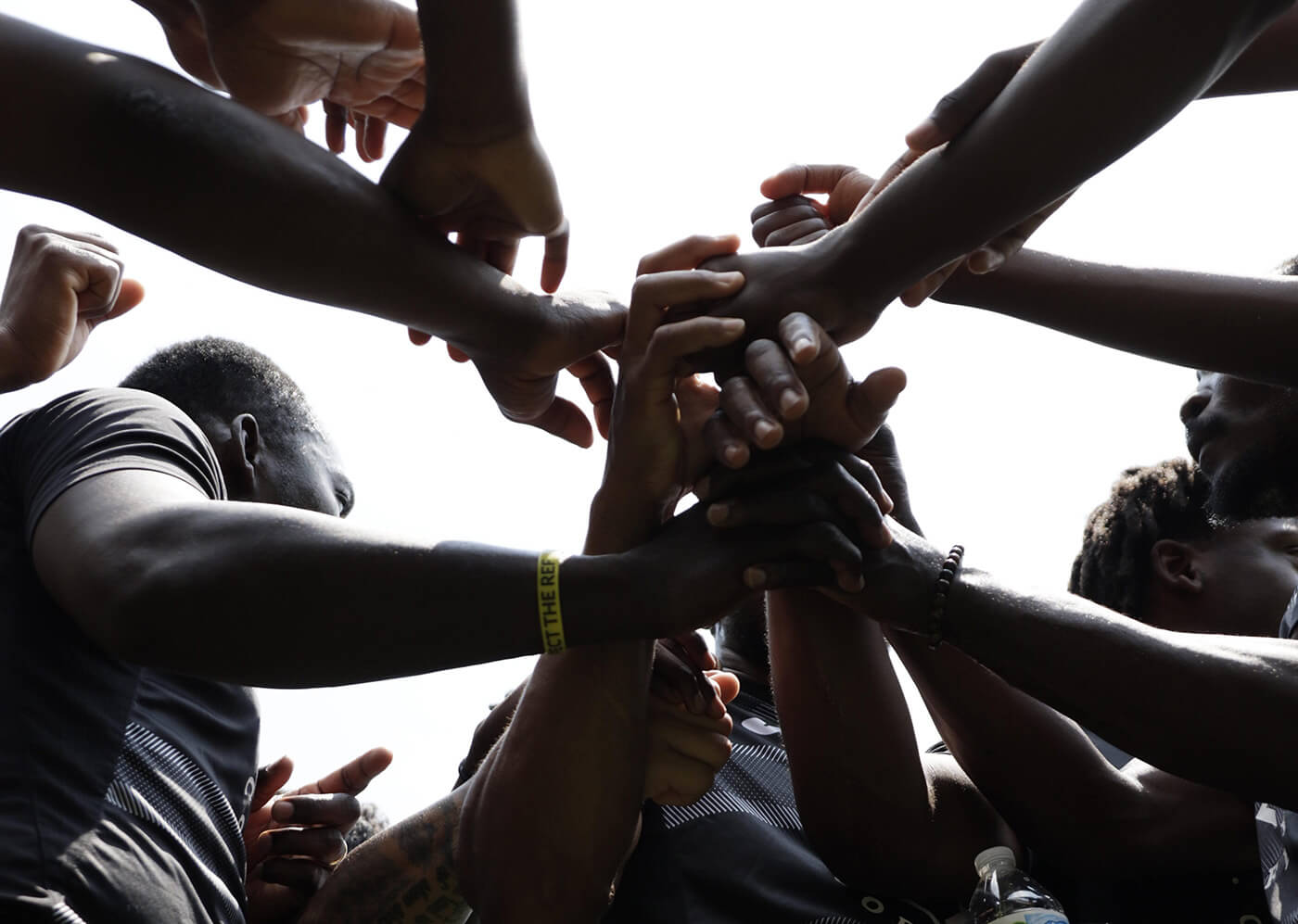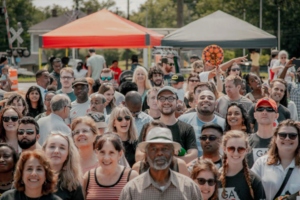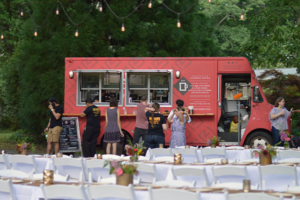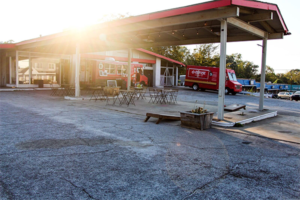Joy on the Sidelines
A few weeks ago, I attended celebrations for Juneteenth and for World Refugee Day. I felt honored to be a part of both celebrations, even though both are “sidelines” holidays for me, a chance to stand cheering because neither holiday is about me, and I don’t belong on the main field.
Both days commemorate the triumph of justice for people who have historically experienced the withholding of justice by those in power over them, often by people who look like me. We all know it is rare for powerful people to use their power to emancipate or empower others. In fact, it doesn’t take much for me to feel shame about the relative power I possess as a white American instead of feeling a more healthy responsibility. This is why, for these moments, sitting on the sidelines cheering is a good and right place for me.
Mainly, what I have realized over time is that the sidelines is a great place to be. And clamoring to be on the main stage or the central playing field is how privilege goes awry.
Head over to More on the Subject for, well, more, but for now just know that I am a fan of the sidelines these days. Take it from a mother, grandmother, leader, friend, neighbor who has learned that the view from the sidelines is lovely (that’s where the confetti cannons and cheer squads camp out, after all!).
(Photos from the FC Matata team we’ve been privileged to watch from the sidelines many times!)
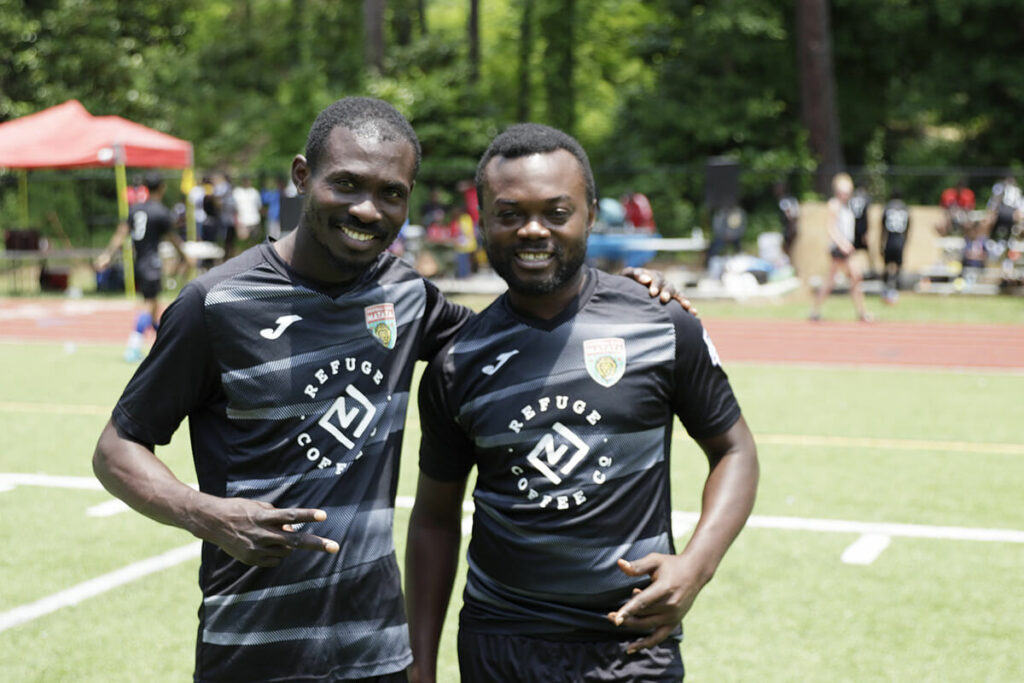
More on the Subject
Years ago, a friend called to share her pain over her daughter’s social activities when she came home from college for spring break. She spent every morning until night visiting old friends, with no time leftover for her mom. My friend wisely chose not to tell her daughter that she was not meeting her maternal expectations.
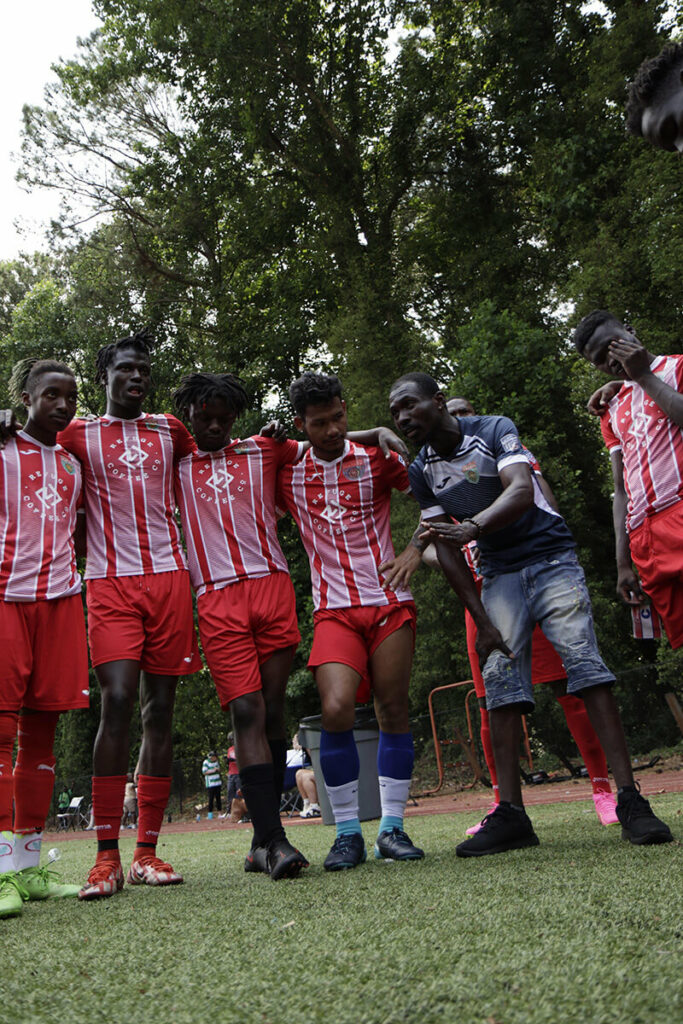
For some reason this evoked a general memory of my own parents who, I now realize, stood by like benign observers while I left home over and over to expend the massive amounts of social energy I possessed when I was my friend’s daughter’s age. My folks were a dim presence on the sidelines of my bright, busy life. Knowing my parents as I began to know them later, this saddens me. My memory does not begin to describe their value; it merely describes where I placed them at that season of our lives.
The sidelines feel like the bench on the other side of the field. Like a demotion. I admit that, like my friend, it does not always meet my expectations. I want to be where the action is!
The very reason I started running years ago was so that I could have the energy to keep up with our boys, to avoid the sidelines at all cost. For me, playing equaled engaging. If I couldn’t play a game of soccer with them in the front yard, ride them on the bike carrier, or climb Stone Mountain with a toddler in hand and a baby on my back, I felt I would miss out on their lives. I had this picture in my head of the Kennedys on the lawn of their home at Hyannis Port playing touch football. That would be us; we would build our very own Camelot right here. It would be so much fun.
But it soon became evident that “keeping up” with our kids on the playing field was a short-lived dream. Somewhere along the way exertion started doing funny things to my brain and my body. I needed more time-outs than they did. And even if I had the energy, they didn’t always include me. So my husband and I bought some canvas camp chairs and got ourselves settled on the sidelines.
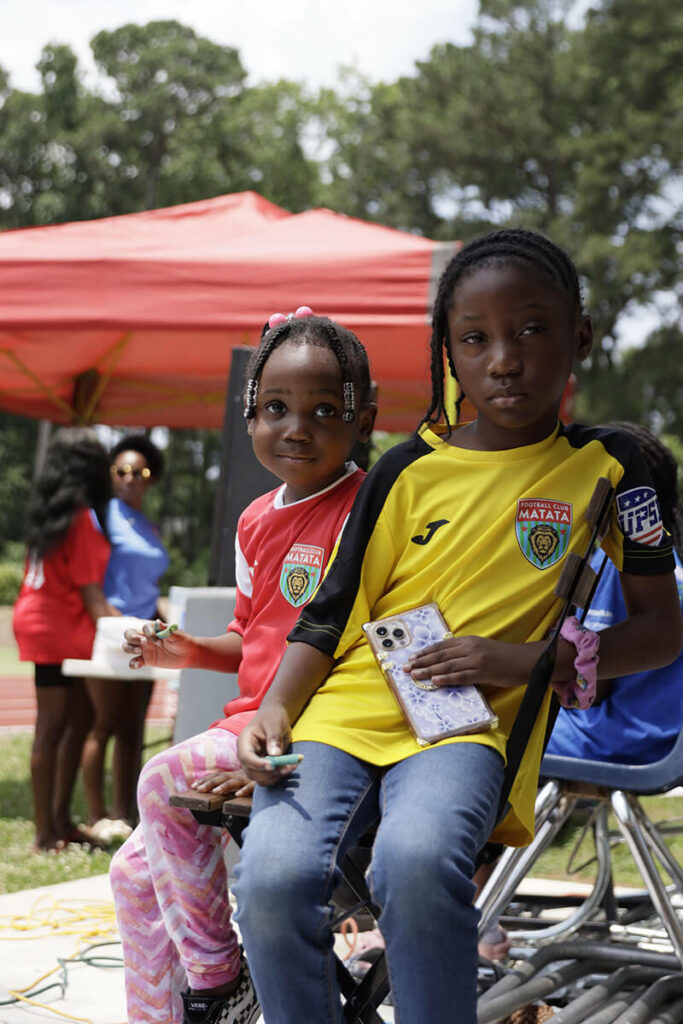
And this migration—to the sidelines—has been happening ever since.
Hands-on became hands-off. To the boy who used to cry for me when he was scared, I became an afterthought for a season. Whispers and secrets were for other’s ears, not mine. I was not always privy to their private jokes, spiritual milestones, or proud achievements. It finally occurred to me that from the moment our sons were born, I was destined for the sidelines.
Sure, this was not my expectation. What major role or endeavor in our lives is pursued with relegation to the sidelines in mind? The transition to the sidelines makes us feel marginalized and left out. But why do we feel that way? Maybe we think of the sidelines as hard punishment, when I now recognize that it has always been a high privilege.
And that’s the thing. Our privilege isn’t something we earn, nor is it something that flourishes in a tight grip. It is in every way meant to be given away, taking the passenger seat so your 15-year-old can learn to drive or giving up leadership so someone else can take charge or leaving the stage so another can shine.
I’ve shared this before, but from time to time when our community gathered at Refuge for an event, Bill would drape his arm over my shoulders and ask, “Is this what you pictured when you started Refuge?” My answer was always that it was much better. And the reason for that, I’m convinced, is not that I led or inspired all that well, but that I moved to the sidelines when it was the right time. I highly recommend it there!

